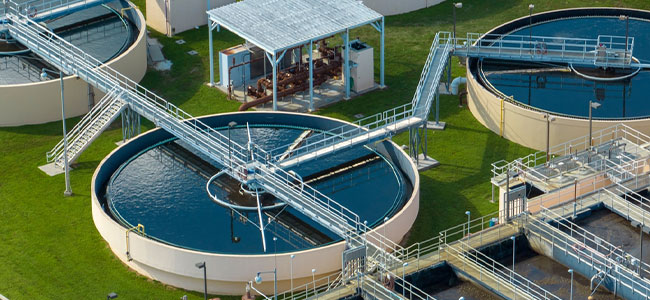
5 Ways Computerized Maintenance Management Systems Drive Productivity In Water Treatment Plants
The use of a computerized maintenance management system (CMMS) can help water treatment plants optimize their maintenance operations while reducing downtimes.
- By Lindsey Walker
- Dec 20, 2023
Water treatment plants are complex facilities that require regular maintenance to ensure that they operate efficiently and effectively. The use of a computerized maintenance management system (CMMS) can help water treatment plants optimize their maintenance operations while reducing downtimes. Let’s discuss how a CMMS can be leveraged to improve the efficiency of maintenance operations in water treatment plants.
A CMMS automates all the maintenance schedules and tracks everything from time and resources to materials and workload. This facilitates efficient management of machine run times, schedules and email notifications. It also offers an end-to-end view of upcoming maintenance schedules, along with a complete history of work orders.
What Comprises Wastewater?
Wastewater is defined as the water-borne waste generated in a specific community. Typically, 99.9 percent of it is made up of pure H2O, with other contaminants making up the remaining 0.1 percent. Typically, houses, light industrial facilities and nearby businesses like eateries, bars, clinics, RV parks, commercial laundries and the like are the sources of wastewater. Nevertheless, roof water and surface runoff are not included. After water treatment services have been used to remove waste, this water can either be recycled or returned to the surrounding environment. Pathogenic microorganisms, suspended particles, biodegradable organics and nutrients are all reduced by the treatment procedures.
Here are some ways a CMMS can be used to optimize maintenance operations in water treatment plants.
- Improving Accountability and Productivity
A CMMS improves accountability and productivity by automating all the maintenance schedules and tracking everything from time and resources to materials and workload. It also seamlessly interfaces with supervisory control and data acquisition (SCADA) systems to boost preventive and predictive maintenance tasks based on different combinations of temperature, pressure and vibration.
An easy-to-access preventive maintenance (PM) scheduling module enables facility managers to set work order notifications and seamlessly maneuver system controls. With real-time visibility into operations, it becomes easy to plan PM tasks based on run times and equipment usage. Since it interfaces with the SCADA system, operators can easily track pending work orders and replacement parts required for specific machinery and assets at different locations.
- Lowering Operational Costs
CMMS software automates the scheduling of inspections, maintenance, repairs and replacements, which in turn prevents expensive failures. A CMMS makes it possible to switch from reactive to proactive maintenance. This approach not only extends the service life of vital plant equipment but also reduces operational costs in the long haul.
Water and wastewater plants need to comply with a host of regulations governing purification equipment and delivery systems. A CMMS makes it easier to comply with these regulations by automating the scheduling of inspections, maintenance and repairs.
- Preventing Contamination and Ensuring Safety
Asset management software with mobile computing capabilities efficiently addresses contamination problems faced by water utilities. Early identification of potential failures and faulty parts ensures timely maintenance and extends the longevity of vital infrastructure equipment.
In conclusion, a CMMS is an essential tool for water treatment plants to optimize their maintenance operations while reducing downtimes. It improves accountability and productivity, enhances responsiveness, lowers operational costs, achieves compliance, prevents contamination and ensures safety. By leveraging the benefits of a CMMS, water treatment plants can ensure that they operate efficiently and effectively while delivering clean and safe water to communities.
About the Author
Lindsey Walker is the marketing manager for NEXGEN, a Sacramento-based industry leader in designing advanced computerized maintenance management systems and asset management software tools for utilities, facilities, public works, manufacturing, and fleet industries. In her free time, Lindsey enjoys traveling and reading, which allows her to gain new perspectives and inspiration for her work. She is committed to creating content that connects well with her readers, enhancing their digital experiences.